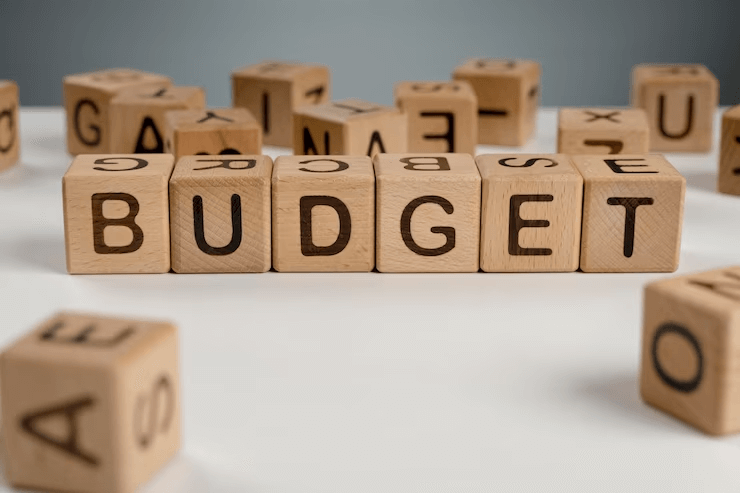In today’s fast-paced world, events play a pivotal role in the success of businesses, organisations, and even personal ventures. Whether it’s a corporate conference, a product launch, or a charity fundraiser, events provide a valuable opportunity to connect with your target audience, establish your brand, and achieve your objectives. However, even the most promising events can fall flat without a well-planned and executed event strategy. In this comprehensive guide, we will explore the key steps involved in developing an effective event management strategy that will maximise your chances of success.
1. Define Your Objectives
The first step in developing an event strategy is to clearly define your objectives. What do you hope to achieve with this event? Are you aiming to increase brand awareness, generate leads, foster customer loyalty, or something else entirely? By identifying your objectives upfront, you can align your event strategy to meet these goals effectively.
Suppose you want to use your concert venue in Dublin for an event to generate new leads, expand member bases, and meet attendees’ needs. In that case, it is imperative that a strategic approach be put in place beforehand. Without it, key details could slip through the cracks. Reaching shared, clear, measurable goals empowers teams to work cohesively and make well-informed decisions, but it’s essential to be realistic. Avoiding setting unrealistic or impossible-to-reach targets that won’t get achieved can significantly lower staff morale and make achieving your goals harder than necessary.
Establishing clear event objectives is integral to developing an effective event strategy. They form the basis of the strategic event management process and help ensure all actions taken by your event adhere to its original intentions. Establishing goals for an event is the first step toward building buy-in from all members of your team. When everyone understands what the goals are, they can feel more at ease when planning the details and striving to ensure its success.
Having specific business goals for your event will enable you to measure its return on investment (ROI) while aligning it with overall marketing and sales strategies. One top computer and data storage company hosted events as a part of its marketing and sales initiatives, providing attendees with a platform on which they could share insights and experiences, thus tracking attendance activity while cultivating more intimate relationships that boosted lead gen and memberships.
If your event focuses on product promotion, one objective could be attracting a certain number of new customers – an objective you could track before and after the event – that can also tie to business metrics like sales revenue or brand recognition – so data on this goal can be shared with sales and marketing teams to create opportunities and close deals more easily.
Once your strategy is in place, make sure all members of your team understand it. This will ensure that all aspects of the event are working towards the same goals and give a clear indication of its performance once completed. Your event plan must detail how your event will generate business value, with specific actions planned to reach this objective. Achieving this requires creating a plan that’s not too broad or vague but easy to implement.
2. Know Your Target Audience
Event marketing can be an excellent way of reaching your audience in ways other channels cannot. To maximise its effect, however, it is critical that you first gain an understanding of who your audience is in order to maximise the effectiveness of your events. Knowing who they are will enable you to determine the type of content and experience to deliver and create for them as well as the types of sponsors to seek, the talent to feature and the overall style and substance.
Understanding your target audience is crucial for designing an event that resonates with them. Conduct market research, analyse demographics, and gather insights to create buyer personas. This will help you tailor your event content, format, and marketing efforts to appeal to your target audience, ensuring maximum attendance and engagement.
Becoming familiar with your attendees and stakeholders will help you craft an event message that resonates with them. Focus on their pain points and how attending will bring relief; attendees and other stakeholders will more readily buy into attending your event if it offers solutions to their problems.
3. Budget Planning
Once your goals are clear and smart, it is time to formulate a budget that will enable them to come to fruition. A sound event budget provides a framework that facilitates all the many tasks required in strategic event management, with emphasis placed on what, why, when, and how much. A budget plan also assists with keeping costs under control during its planning so it doesn’t become a chaotic disaster. Begin by determining your available funds before creating an event budget based on that number.
Developing a realistic budget is essential for the success of any event management strategy. Determine how much you are willing to invest in the event and allocate funds to different areas such as venue, marketing, speakers, catering, and logistics. Be mindful of both fixed and variable costs to avoid any surprises along the way.
Once your budget is in place, it is critical to share this plan with both your team and stakeholders in order to keep everyone aligned and ensure a successful process. Timely sharing can ensure everyone stays on track without unexpected surprises in the future.
4. Choose the Right Event Format
Selecting the appropriate event format is critical to achieving your objectives. Consider factors such as the nature of your event, the preferences of your target audience, and the resources available. Options include conferences, seminars, workshops, trade shows, webinars, networking events, and more. Each format offers unique advantages, so choose the one that aligns best with your goals.
5. Develop a Compelling Event Content Strategy
Content is king, even in the world of events. Create a captivating content strategy that aligns with your event objectives and target audience. Identify keynote speakers, panellists, or experts who can deliver valuable insights and engage attendees. Consider incorporating interactive elements, such as workshops, Q&A sessions, or live demonstrations, into the event to enhance attendee participation and knowledge sharing.
Use content marketing to spread the word about your event in the weeks and months leading up to it by dropping details about speakers, sessions, and other features of the event. Doing this will pique people’s curiosity while keeping people informed.
6. Implement Effective Event Marketing
It’s crucial to promote an event effectively to ensure its success. Leverage various marketing channels, such as social media, email marketing, content marketing, influencer partnerships, and traditional advertising, to generate awareness and drive registration. Craft compelling messages that highlight the unique value proposition of your event and use targeted marketing strategies to reach your desired audience segments.
It’s crucial that you establish and communicate multiple touchpoints for stakeholders to interact and engage to ensure the success of your event marketing plan. Doing this increases the chance that attendees or partners commit to attending or buying into its value proposition.
Create a buzz by posting relevant and exciting content on your website or social media, such as email messages, videos, or blog posts that create anticipation among your target audience for an event you are organising. This can increase interest by giving people #FOMO (fear of missing out).
Reaching out to media and local businesses to promote your event can also be very effective in increasing attendance and visibility for it. By providing the correct details to journalists, your event could potentially become featured on popular news stations, which would increase attendance and exposure to your event
A well-planned event marketing strategy serves as the cornerstone of any strategic event planning process; without one, goals won’t be reached, and goals may go unfulfilled – make sure that early in the planning process, you develop and adhere to it! Remarketing can also help boost engagement. Remarketing allows you to display targeted ads on the websites of users who have visited your event site or pages, reminding people about upcoming events and encouraging registration.
7. Secure the Right Venue and Vendors
Effective event strategies require selecting the appropriate tools. From choosing an ideal venue to engaging vendors who will ensure an exceptional attendee experience, selecting those best suited to your brand is key to creating an event strategy that delivers. Once your budget and goals or objectives for the event have been established, negotiations with venues and vendors can commence to ensure you receive the best deals possible.
Venues often provide many services in-house that can assist your strategic event planning, such as food and beverage, AV equipment, or production capabilities that may come in handy during its planning stage. Gaining an understanding of these offerings may allow for more favourable pricing or gain access to additional services that might prove invaluable for your occasion.
Choosing the right venue can significantly impact the success of your event. Consider factors such as location, capacity, facilities, and ambience that align with your event goals. Research and select vendors that can provide services like catering, audiovisual equipment, decorations, and event staffing. Thoroughly review contracts, negotiate prices, and ensure all logistics are in place well in advance.
8. Plan and Execute Engaging Event Experiences
A successful event requires meticulous planning, strategic event management, and flawless execution. Pay attention to every aspect, from registration and check-in processes to event flow, sessions, and breaks. Create a detailed event timeline, taking into account all the necessary preparations leading up to the event day. Incorporate interactive elements, networking opportunities, and engaging activities to create a memorable experience for attendees.
Event experiences should reflect both your company’s personality and values as well as the target audience you hope to draw. For instance, if your target market includes mid-level engineering managers looking for engaging environments and playing with peers from their field, an ideal event experience should consist of multiple co-creative sessions with friendly interactions among attendees.
9. Measure and Evaluate Success
After the event, it’s essential to evaluate its success against your predefined objectives. Analyse attendee feedback, survey results, and key performance indicators (KPIs) to determine the effectiveness of your event strategy. Evaluate factors such as attendance rates, engagement levels, lead generation, return on investment (ROI), and overall attendee satisfaction. Use this data to identify areas of improvement and to inform your future event strategies.
As part of your evaluation of an event’s success, it’s also wise to explore possible funding sources (or sponsors) that could assist with meeting its objectives. Be sure to compare actual costs vs projected expenses post-event and identify any major savings made possible through these efforts; this information can prove useful when presenting its evaluation results to stakeholders or sponsors and help better allocate your event budget going forward.
10. Foster Post-Event Engagement
After the event is finished and every box has been loaded onto the truck, an event organiser’s job does not end there. A post-event strategy must be devised which creates meaningful connections, helps qualify leads, and ultimately meets your goals.
One way of accomplishing this goal is through email post-event engagement. Sending thank you emails or inviting attendees back for the next event are great ways of keeping attendees interested, while including a short survey about their experience can help identify areas for improvement and inform future planning efforts.
Engaging attendees post-event can be made easy by hosting a social media contest – it could be as simple as running a photo caption competition or hosting a giveaway! A contest like this will generate excitement among your attendees while simultaneously promoting your event, creating memorable experiences at every step.
Don’t let the momentum of your event die down once it’s over. Leverage post-event engagement strategies to maintain the connection with attendees and capitalise on the event’s success. Send thank-you emails, share event highlights on social media, and provide access to post-event resources such as presentations, recordings, or whitepapers. Encourage attendees to provide testimonials and reviews, which can serve as valuable social proof for future events.
11. Continuously Improve
Successful event strategies are built on a foundation of continuous improvement. Gather feedback from stakeholders, attendees, and team members to identify areas where you can enhance future events. Analyse trends in the industry and stay updated with the latest event technologies and best practices. Embrace innovation and be open to trying new approaches to keep your events fresh, engaging, and impactful.
Conclusion
Developing an effective event strategy is a multifaceted process that requires strategic event planning, attention to detail, and a deep understanding of your target audience. By following the steps outlined in this comprehensive guide, you can create events that not only meet your objectives but also leave a lasting impression on attendees. Remember, a successful event management strategy is a dynamic one that adapts to changing trends and feedback. With each event, you have the opportunity to refine your approach and deliver even more exceptional experiences. So, go ahead and embark on your journey to create memorable and impactful events that drive results for your organisation.




